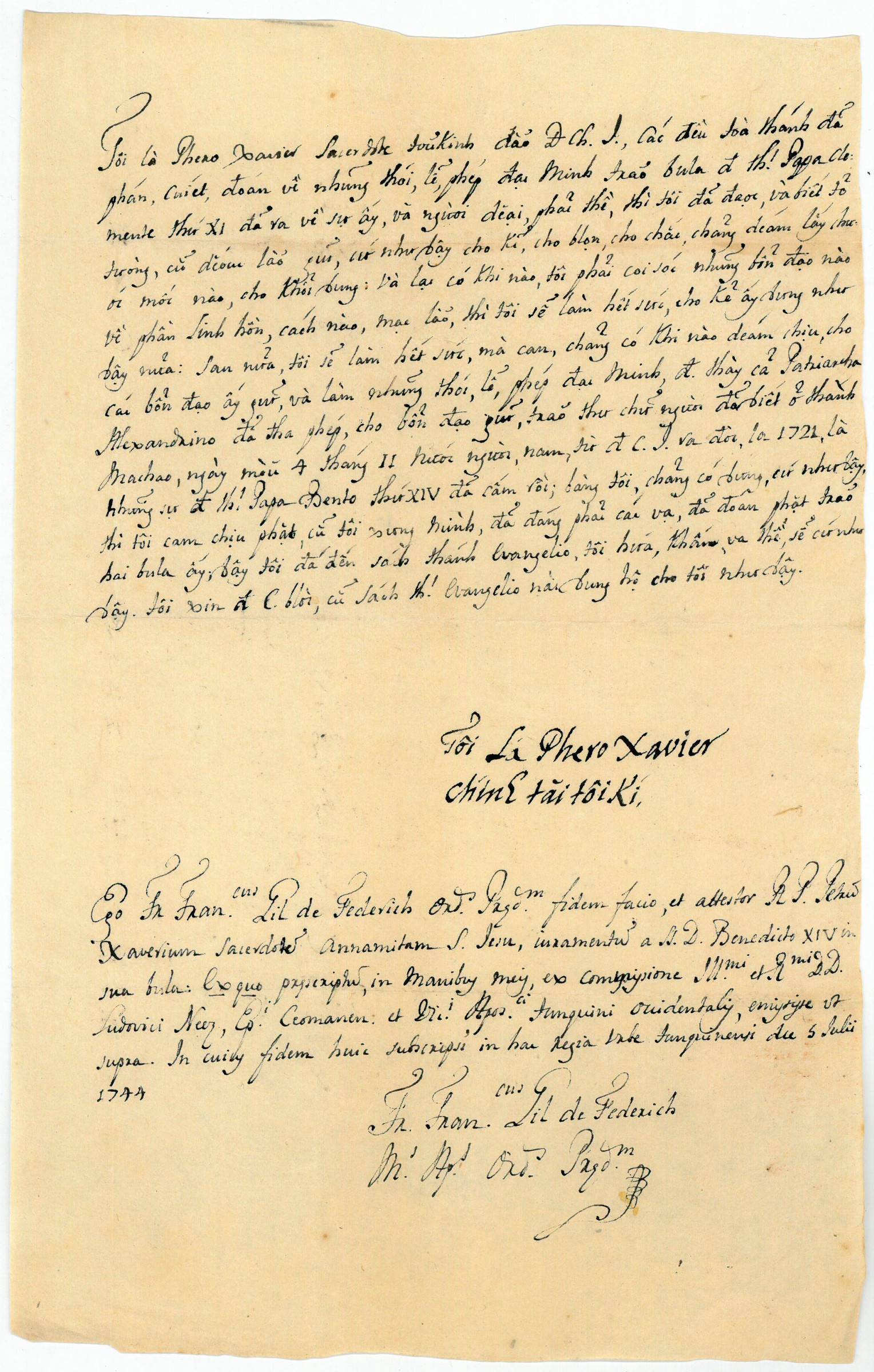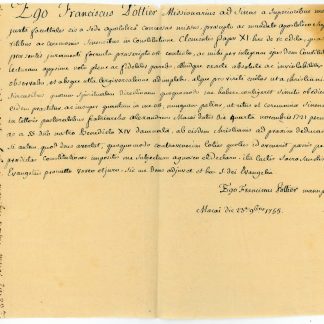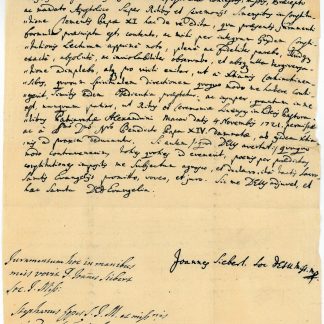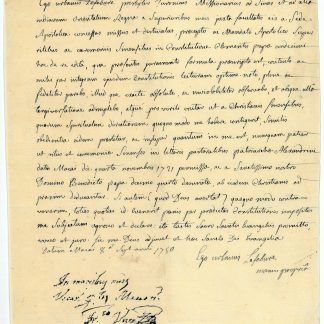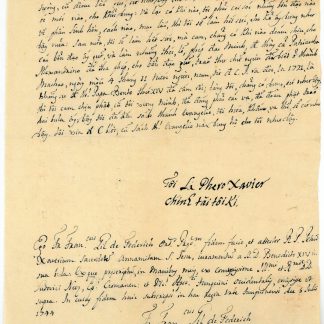Document with 5 autograph lines signed.
8vo. 1 p. In Vietnamese and Latin.
€ 2,500.00
An oath renouncing the practice of the Chinese rites, as required by the Papal Bull "Ex Quo Singulari" (1742), taken by a Vietnamese Jesuit who took the religious name Petrus Xaver and co-signed by Francesco Gil de Frederich y Sans. The oath was sworn on the Bible, and a signed autograph ("manu propria") of the formula had to be produced as evidence. Originally in Latin, Petrus Xaver resorted to the standardized Vietnamese translation of the formula and wrote it in romanized Vietnamese script. Most of these documents are co-signed by church officials or superior friars as witnesses to an oath sworn in their presence ("in manibus meis"), in this case, Saint Francesco Gil de Frederich y Sans, who signed by authority of the Vicar Apostlic of Western Tonkin, bishop Louis Néez.
Born in Tortosa, Catalonia, and educated at the Convent of Santo Domingo in Orihuela, Gil de Frederich y Sans left Spain for Manila, Philippines, in 1729, from where he was sent to Vietnam as a missionary in 1735. After two years of evangelization, he was arrested on 3 August 1737 and brought to Hanoi in chains. Throughout his seven-year detention in the capital, he enjoyed limited freedom of movement and could even covertly continue his missionary work, but was also subject to torture and harsh treatment during several trials. The document at hand thus dates to the sixth year of his detention and is a beautiful document of the Dominican's unbroken commitment to his mission. Francesco Gil de Frederich y Sans was ultimately sentenced to death and, after he refused to apostatize, beheaded on 22 January 1745 together with his Dominican brother Saint Mateo Alonso de Liciniana, whose original death sentence had had been reduced to life in prison but who chose to share the fate of his companion. Pope Pius X beatified the two martyrs in 1906 and in 1988; they were canonized together with over 100 Vietnamese Martyrs by Pope John Paul II.
During the early years of their mission to East Asia, the Jesuits led by Matteo Ricci accommodated Catholicism to Chinese customs and Confucian practice in important ways, both for political reasons and in the hope of attracting more converts. Criticism of this syncretism is as old as the Chinese rites themselves, and Ricci's direct successor Niccolò Longobardo attempted to change course, which led to his replacement as provincial. When Dominican and Franciscan missionaries entered China, they reported critically to Rome on the Jesuit practices. A first condemnation was decreed by Pope Clement XI in 1704 and confirmed in the 1715 Bull "Ex Illa Die". In "Ex Quo Singulari", Pope Benedict XIV re-affirmed "Ex Illa Die" and required all missionaries in East and South-East Asia to take the oath renouncing the practice of Chinese rites and similar accommodations to local beliefs and religious practice.
Well preserved.

